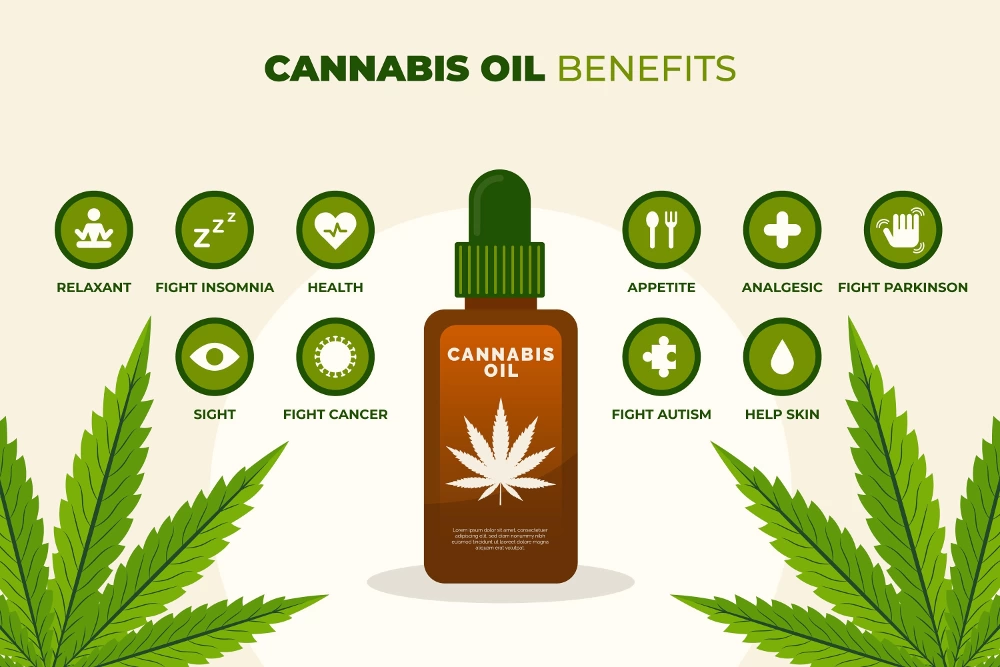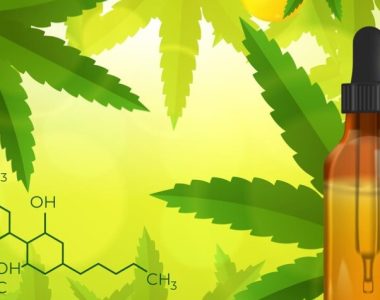Here is a popular guide to Delta 8 vs. Delta 9 vs. Delta 10 products. From their effects on the body to their legal status and potential benefits – we’ve got it all covered! Let’s explore the fascinating differences between Delta 8, Delta 9, and Delta 10!
What are Delta 8, Delta 9, and Delta 10?
Delta 8, Delta 9, and Delta 10 are three distinct compounds that belong to the cannabinoid family. These compounds are derived from hemp or cannabis plants and have gained significant attention in recent years due to their potential therapeutic effects.
Let’s start with Delta 8. This mixture is chemically equivalent to Delta 9 THC (the well-known psychoactive compound found in marijuana) but with a slight difference in molecular structure. It is considered less potent than Delta 9 THC, meaning it may provide a milder high while still offering certain benefits.
Moving Delta 9, this is the most well-known and abundant form of THC found in cannabis plants. It’s responsible for the euphoric effects commonly associated with marijuana use. While it has potential medicinal properties, it also carries more substantial psychoactive effects than its counterparts.
We have Delta 10 – a relatively new addition to the cannabinoid family. Like its siblings, it interacts with our body’s endocannabinoid system. Still, it offers unique effects that distinguish it from Delta-8 and Delta-9.
Each compound possesses distinct characteristics that appeal to users seeking various experiences or therapeutic benefits. Understanding their distinctions can help people make educated decisions when exploring cannabinoids for personal use or wellness purposes.
The Differences Between the Three Delta Compounds
Delta 8, Delta 9, and Delta 10 are three different variants of THC (tetrahydrocannabinol), the psychoactive compound found in cannabis. While they share similarities, it’s essential to understand their distinctions.
Let’s talk about Delta 8. It is a minor cannabinoid that occurs naturally in cannabis plants but in much smaller concentrations compared to Delta 9. This compound offers a milder high and is often described as providing a more relaxed experience with less anxiety or paranoia.
On the other hand, Delta 9 is the most well-known and abundant form of THC. It’s responsible for the solid psychoactive effects commonly associated with marijuana use. The potency of Delta 9 can vary depending on factors such as strain and consumption method.
There’s Delta 10, which has gained attention more recently. It is similar to Delta 8 and Delta 9 but has unique properties. Some users report feeling energized and focused when consuming products containing this compound.
It’s worth noting that while these compounds have different effects on individuals, they all interact with the body’s endocannabinoid system by binding to CB1 receptors in the brain.
Understanding these differences can help consumers make informed choices when selecting products that suit their preferences and desired experiences. Whether you prefer a mild high or a potent one, knowing your options will allow you to find what works best for you!
The Effects of Each Compound on the Body
Delta 8, Delta 9, and Delta 10 are all forms of THC (tetrahydrocannabinol), the psychoactive compound found in cannabis. While they share similarities, each compound has unique effects on the body.
Delta 8 is known for its milder psychoactive properties compared to Delta 9. It can provide a more clear-headed and focused high, making it a popular choice for those who want to relax without feeling overwhelmed or anxious. Users often describe the effects as uplifting and calming, with potential pain-relieving properties.
On the other hand, Delta 9 is the most well-known form of THC and is responsible for the intense euphoria associated with traditional marijuana use. Its psychoactive effects can vary depending on dosage and individual tolerance levels. Some users may experience increased creativity and sociability, while others may feel more sedated or paranoid.
Delta 10 is relatively new to the scene but has gained attention for its energizing effects. Users report feeling alert, uplifted, and motivated after consuming this cannabinoid. It offers a balanced high between Delta 8’s relaxation and Delta 9’s intensity.
It’s important to note that everyone reacts differently to these compounds due to individual biology and tolerance levels. As always, start with low doses when trying any new substance until you understand how your body responds.
As research into these compounds continues to evolve, their potential therapeutic benefits are also being explored further. Some studies suggest that they may have anti-inflammatory properties or could potentially aid in managing anxiety disorders or chronic pain conditions.
However, it’s also crucial to be aware of possible risks associated with their use. Like any THC product, there is a risk of dependency or abuse if used excessively or irresponsibly.
Understanding the differences between Delta-8, Delta-9, and Delta-10 can help individuals make informed choices about their cannabis consumption.
Legal Status and Availability of Delta 8 vs. Delta 9 vs. Delta 10
Now that we’ve explored the differences between Delta 8, Delta 9, and Delta 10, let’s dive into their legal status and availability. It’s important to note that these compounds are derived from hemp or cannabis plants, so their legality can vary depending on where you live.
Delta 8 THC is currently legal federally in the United States under the Farm Bill of 2018. However, it’s worth checking your state’s specific laws, as some have restricted its sale or use. As for Delta 9 THC, it remains illegal at the federal level but is legal for medicinal or recreational use in certain states.
Delta 10 THC falls into a bit of a gray area when it comes to legality since it is not as widely known or regulated as its counterparts. While some states may consider it legal due to its similarity to other THC compounds, others may restrict its sale or consumption.
When it comes to availability, all three compounds can be found in various forms, such as vape cartridges, edibles, tinctures, and concentrates. They are commonly sold by licensed dispensaries or online retailers who adhere to strict quality control standards.
As with any controlled substance, purchasing from reputable sources is crucial to ensure you get a safe and reliable product. It’s always advisable to research local laws and regulations before trying these compounds yourself.
Remember: Stay informed about the legislation surrounding these substances in your area!
How to Consume Delta 8 vs. Delta 9 vs. Delta 10
When it comes to consuming Delta-8, Delta-9, and Delta-10 compounds, a few different options are available. Let’s take a closer look at how each of these compounds can be consumed.
1. Edibles: One popular way to consume Delta-8, 9, and 10 is through edible products such as gummies or chocolates. These edibles often come in pre-dosed servings, making them convenient and easy to use.
2. Vaping: Another standard method for consuming these compounds is vaping. Vaporizers heat the substance to create a vapor that can be inhaled. This allows for rapid absorption into the bloodstream and provides immediate effects.
3. Tinctures: Tinctures are liquid extracts that can be taken orally by putting drops under the tongue or adding them to food or beverages. This method offers precise dosing control and discreet consumption.
4. Topicals: For localized relief, topicals infused with Delta-8, 9, or 10 can be applied directly to the skin as creams or lotions.
5. Inhalation: Similar to vaping but without additives or flavorings, inhaling these compounds using a dab rig or concentrate pen delivers potent effects quickly.
Remember that everyone reacts differently to cannabinoids like Delta-8 vs Delta-9 vs. Delta-10 THC; therefore, finding the correct dosage and delivery method might require some trial-and-error experimentation under professional guidance.
Potential Benefits of Using Each Compound
Delta 8, Delta 9, and Delta 10 are unique compounds offering different potential benefits for users. While more research is needed to understand their effects fully, here are some possible advantages of each compound.
Delta 8 has gained popularity for its reported ability to provide a mild euphoric feeling without the anxiety or paranoia often associated with Delta 9 THC. Users have claimed it can help promote relaxation, reduce stress, and uplift mood. Additionally, some suggest that Delta 8 may also possess anti-inflammatory properties.
On the other hand, Delta 9 THC is well-known for its psychoactive effects. It can potentially enhance creativity and boost focus in some individuals. Many people turn to Delta 9 for its potential pain-relieving properties as well.
Delta 10 is a relatively newer addition to the scene but shows promise as an energizing compound. Some users report increased motivation and productivity after consuming it. Additionally, similar to other cannabinoids, there are suggestions that it may possess anti-inflammatory properties.
It’s important to note that individual experiences may vary greatly when using any of these compounds due to tolerance levels and personal biology. We recommend consulting a healthcare professional before trying new substances or products.
Risks and Side Effects to Consider
When it comes to any substance we introduce into our bodies, it’s important to be aware of the potential risks and side effects. The same goes for Delta 8, Delta 9, and Delta 10 compounds. While these compounds may offer various benefits, understanding their possible adverse effects is crucial.
One risk associated with delta compounds is their psychoactive nature. Like its close relative Delta 9 THC, both Delta 8 and Delta 10 can cause intoxicating effects. This means that using them may result in altered perception, cognitive impairment, and a feeling of being “high.” It’s important to remember that everyone reacts differently to these substances.
Another factor to consider is the legality of these compounds. While some states have legalized cannabis products containing specific levels of THC (including delta-8), regulations vary widely across different regions. Therefore, it’s crucial to research local laws before purchasing or consuming any delta compound product.
Furthermore, like other cannabinoids such as CBD or THC-delta-9, there may be potential side effects associated with using delta-8 or delta-10 products. These include dry mouth, red eyes, increased heart rate/blood pressure, dizziness or lightheadedness when standing up quickly after use (due to potential blood pressure changes), impaired coordination/ motor skills during intoxication periods, etc.
It’s also important not to overlook the fact that inhaling smoke from cannabis-derived products can pose health risks similar to smoking tobacco due to combustion byproducts potentially irritating the respiratory system.
Consuming edibles infused with delta compounds carries its own set of considerations as well since they typically take longer for effects onset compared with inhalation methods, which could lead users into accidentally taking too much at once they underestimate potency, leading them to feel overwhelmed instead experience desired effectivity without overconsumption-related problems afterward.
Let’s sum it up.
This article explored the distinctions between Delta 8, Delta 9, and Delta 10 cannabinoids. Each compound has its unique properties and effects on the body.
Delta 8 is known for its mild psychoactive effects and potential therapeutic benefits. It offers a more subtle high compared to Delta 9 THC, making it popular among those seeking relaxation without intense intoxication. However, due to its close resemblance to Delta 9 THC, it may still be subject to legal restrictions in some areas.
Delta 9 THC is the most well-known cannabinoid found in cannabis plants and is responsible for the classic “high” associated with marijuana use. It can produce potent psychoactive effects and has shown promise in managing certain medical conditions such as chronic pain and nausea.
Delta 10 is a relatively new addition to the scene, with limited research on its effects. Preliminary studies suggest that it may offer similar benefits to other cannabinoids, but further investigation is needed before definitive conclusions can be drawn.
When considering legal status and availability, it’s important to note that regulations surrounding these compounds can vary from state to state or country by country. While some jurisdictions have legalized one or more of these compounds for recreational or medicinal use, others maintain strict restrictions or outright bans.
As with any substance affecting our bodies and minds, there are potential benefits and risks associated with using delta-8, delta-9, or delta-10 products. It’s essential to approach their consumption responsibly while being mindful of individual tolerance levels and adhering to local laws.
When consuming these compounds (whether through smoking/vaping products or edibles), start low and go slow until you understand how your body reacts. Consulting a healthcare professional experienced in cannabis medicine can provide valuable guidance explicitly tailored to your needs.
Whether you choose delta-8 over delta-9 or explore emerging options like delta-10 will depend on personal preference, availability, legal considerations, and desired effects.
The List Of Sativa Strains Has Grown. See The Most Popular Ones For 2023







